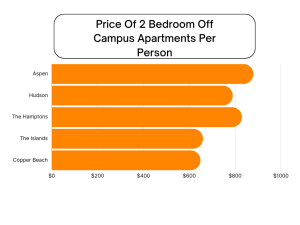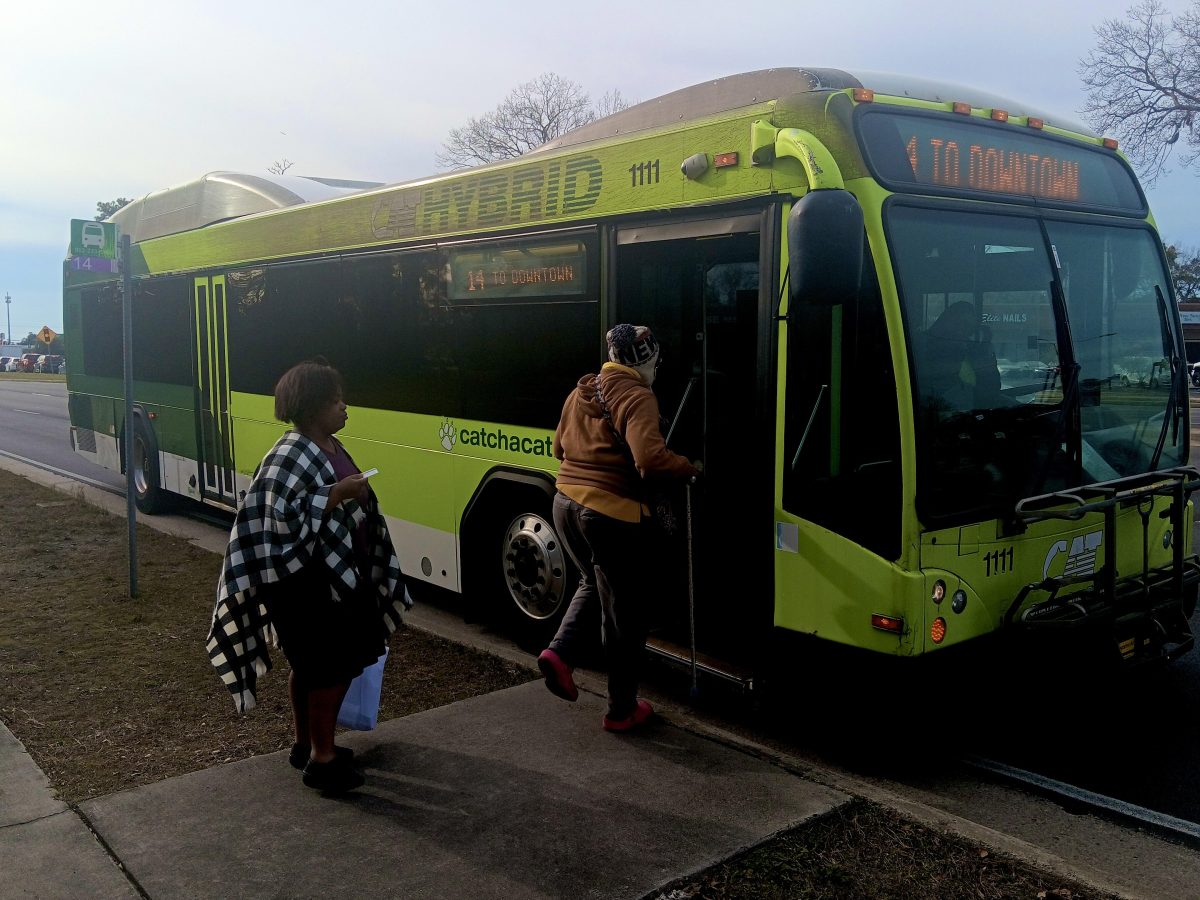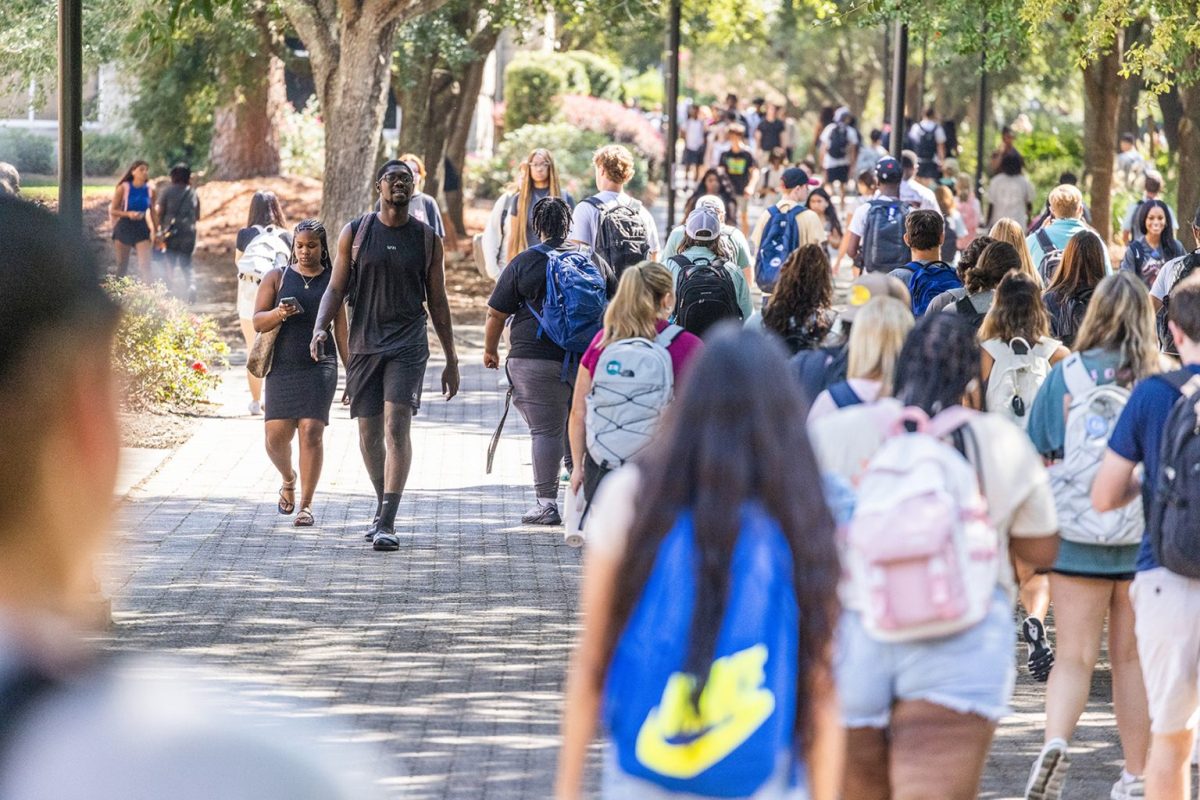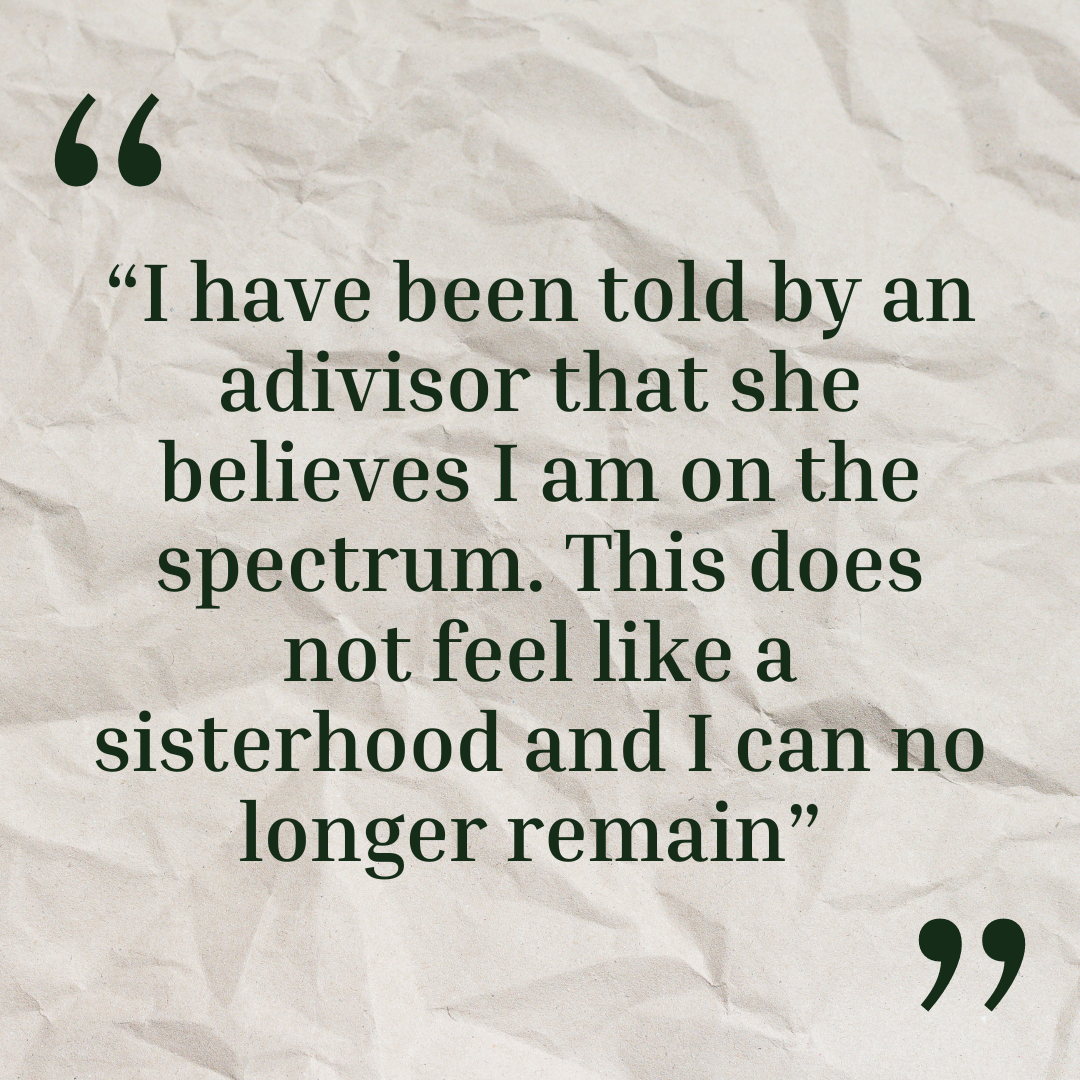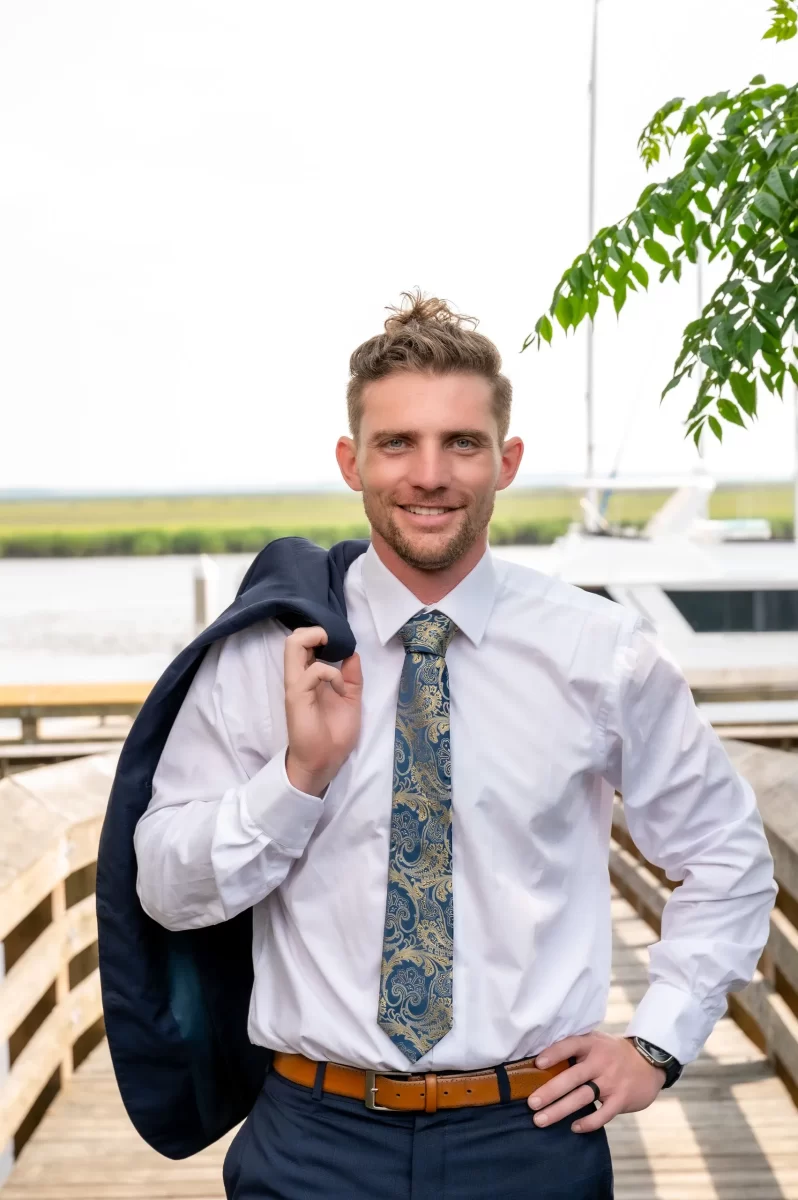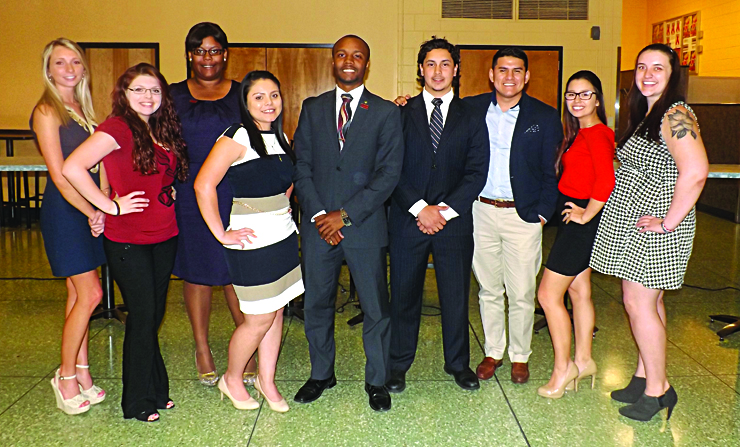
By Emily Smith and Ruby Rizvi, Arts & Entertainment Editor and News Editor
The Student Government debates took place on April 6 in a nontraditional venue; the Memorial College Center food court. Before the much anticipated candidate debates took place, students running for senator positions introduced themselves.
Brennan Fitzgerald, a brother of Sigma Alpha Epsilon fraternity, was the first potential senator to take the floor. Next was Emmanuel Diaz, who is involved in HOLA and is one of the founding brothers of Lambda Theta Phi Latin Fraternity. The last senator running to speak was Christian Mojica, a founding brother of Brother to Brother, a latino male initiative that will be on campus in the Fall of 2015.
Following the senate candidates, were those running for SGA executive board positions to begin their debates.Each candidate received 1 minute to answer questions with the option of a 30 second rebuttal.
Candidates Hunter Hart and Emily Bressler of the secretary position were the first to debate.
The first topic addressed was that of meeting minutes, which are an overview of what is discussed and taken care of at SGA meetings, and how the candidates plan to distribute them to the senators and student body.
Hart stated that she wants to make sure the entire student body is informed of what SGA is doing. “I want to encourage them to come to meetings,” Hart said. She also said that she has looked over all of the minutes since 2010 up until this year to become more familiar with the minutes.
Bressler said that she wants to begin meeting with RSOs (Registered Student Organizations) because “a lot of people don’t know about major RSO events.” She continued to say that reaching out to RSOs is the best way to promote the organizations and convince students to use the app.
Hart too plans to set up meetings with RSO leaders, and make sure that they’re getting the information.
Next on the line-up for the debate were the treasurer candidates, Desiree Adams, Bailey Middlemas, and Casey Scheidt.
Adams opened the discussion by telling the audience of some of her plans if she becomes treasurer. This includes proposing an outline of what is being spent by SGA and a financial report so senators can see for themselves what is being spent. “This will also help make sure that we never overspend,” she said.
Middlemas said that she plans to look back at budgets from previous years and see what money was allocated to each event.“Far too often RSOs get cut on funding and we don’t listen to what the students want.”
Scheidt wants to continue working with financial aid office to host events and find ways to pull more scholarships from local Savannah facilities/businesses.
Following the treasurers’ debate, vice presidential candidates Miguel Rodriguez and Henry Laxson took to the platform to begin theirs.
Laxson started the discussion with the communication and promotion, or lack there of, for events and organizations on campus. He believes that publicity and communication are keys to having an involved population. “What we do right now is hang up fliers and hope to God that (students) see the fliers and attend events,” Laxson said. He further explained the importance of personally engaging with students and making them aware of these events.
Rodriguez began by stating that more funding is needed for organizations. “Information distribution to organizations on how to apply for funds is important.” The discussion then transitioned to school spirit and what each candidate plans to do to improve attendance at club and sporting events.
“Being part of greek life, we have this issue with recruiting students that are commuters,” Rodriguez said. “One of the big things our campaign is promoting is a free hour where no one has class. In this time we would hold events with all organizations present and have them publicize themselves.” He went on to say that organizations working with each other could potentially attract more students.
When asked how they would work with administration to advocate for students, Laxson replied, “The administrators aren’t voting for me, the students are. The students play a big part in what happens here.” He explained that administrators will get stuff done if you talk with them.
“I would definitely try to meet with them every time I can to show them the facts, what the senate is voting for, and what the students want,” Rodriguez said.
The presidential debate was the final debate of the night, and was between Ellie Marisol Estrada and Matthias Downs.
The debate kicked off with the topic of student meal plans.
Downs explained that he has been working closely with dining services, highlighting a student survey that made the new option of the food truck possible.
Estrada claimed that she has attended food crew meetings and listened to concerns, explaining that better quality food simply equals more money.
The conversation then transitioned to school spirit. Estrada explained that she has been working with the assistant director of athletics to have a pep crew at all athletic events. Other plans involve informing students of events that are going on as well as providing transportation to off-campus events.
Downs believes that school spirit “stems from how we engage with the student body.” He insisted that executives should build a relationship with students in order to increase student spirit across the board.
Next was the issue of DACA (Deferred Action for Childhood Arrivals) students not receiving in-state tuition, but students of three neighboring states can now receive in-state tuition.
Downs explained that, yes, the Board of Regents has the policy in place, but that the change we need is going to take an action from the state government. He also stated that conversation is already happening at the state level, but what the he can do as SGA presidents is go out to the rest of the university to gain support for the motion and have a conversation with administration
“In order to make a change, you need to let people know that change needs to happen,” Estrada said. “One of the big things that I would do would be continue the DACA task force that President Nunoz started last Fall.”
She says that working with BOR and the student advisory council, which is when all SGA presidents get together twice a semester in order to talk about issues that are happening at every institution and model how other states have passed in state tuition. For example, Florida passed the motion to provide in-state tuition for DACA students through through the SGA presidents.
The debate came to an end with each presidential candidate giving their closing statements and reminding the audience of why they are the better choice.
Remember to vote April 13-15 through the Armstrong Port online!




